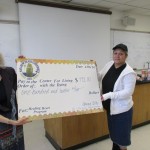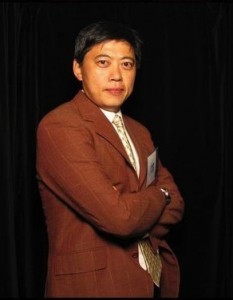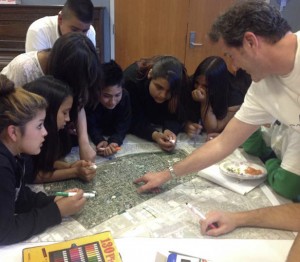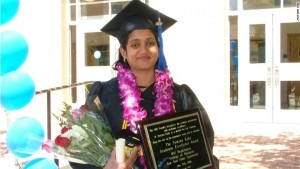-

-
Eve Allums, in red, talks with other students at the Global Citizenship Alliance in Salzburg, Austria.
-
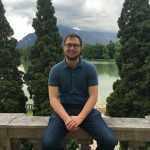
-
Aaron Friedman, an SJSU Salzburg Scholar, poses for a picture in Austria.
Eve Allums, ’18 Political Science, took her first trip outside the United States this summer along with 16 other SJSU students who were selected as Salzburg Scholars this year. She and the other students attended the Global Citizenship Alliance Seminar in Salzburg, Austria, from June 9-16.
Allums said she first learned about the Salzburg Scholars program, in which SJSU students take a global citizenship course in the spring semester, attend a week-long summer seminar in Austria, and then work on a campus project the following year, when she was a freshman.
Her English 1A lecturer Jessy Goodman, ’14 MFA, incorporated global citizenship topics into her English 1A course. The lectures prompted Allums to switch her major to political science and to get involved with former Salzburg Scholars who created SJSU’s Cultural Showcase Event. Goodman herself was an SJSU Salzburg Scholar as a graduate student, and later served as a Fellow.
The SJSU Salzburg program was established in 2005 by Dr. William Reckmeyer, current program director, and Dr. Mark Novak, as a way to enhance the education of global citizens at SJSU. Since its inception, student scholars and faculty/staff fellows have participated as part of the Salzburg Global Seminar (now known as the Global Citizenship Alliance) each summer with a requirement to return to campus in the fall to work on a year-long project to promote global citizenship on campus.
Allums said the program cemented for her that she wants to pursue international law after she finishes her bachelor’s degree.
The program was honored as one of the “Top 10 Programs on Global Citizen Diplomacy,” in U.S. higher education in 2010 by the U.S. Center for Citizen Diplomacy, NAFSA, and the U.S. State Department.
During the week-long seminar in Salzburg, SJSU students met with students from other U.S. universities to learn about global citizenship through topics such as refugees, economics, and the Holocaust.
Aaron Friedman, ’17 Marketing, said the part of the program that really struck him was the visit to the Dachau Concentration Camp Memorial Site and time with a speaker who survived the Holocaust.
“It shows how brutal history can be and how we need to keep talking about it so we don’t repeat it,” he said. “It was a very powerful example of how we really do need to remember history.”
During the week, the students divided into small groups to discuss some topics more in depth and made a presentation on the last day. Friedman’s group focused on ethnocentrism.
“It was interesting how we find ourselves classifying other people,” Friedman said. “There is ‘us’ and there is ‘them.’ Breaking away from these words helps us see the world from a more objective point of view.”
Allums’ group discussed refugees and came up with the concept of creating a support system called the “Beehive” where refugees would be able to connect with resources in their new homes for networking, job hunting and help with integrating into a new society.
“We want to make it a real thing,” Allums said, noting that a few of the students in her group were from SJSU and San Francisco State University. “We can start off small, but our ideas are to make it self-sustaining.”
The 2016-17 Salzburg Scholars also include:
Kristen Anderson, senior, College of Social Sciences
Celina Cesena, graduate student, Connie L. Lurie College of Education
Raissa Chiri-Zarzosa, senior, College of Social Sciences
Taylor Colunga, graduate student, Connie L. Lurie College of Education
Grecia Cuellar, junior, Lucas College and Graduate School of Business
Shriel Deogracias, junior, College of Social Sciences
Brandon Do, junior, College of Applied Sciences and Arts
Yen Huynh, freshman, College of Science
Jatinder Kaur, senior, Lucas College and Graduate School of Business
Sabrina Leung, junior, Lucas College and Graduate School of Business
Adriana Muratalla-Morales, junior, College of Humanities and the Arts
Nyantara Narasimhan, junior, College of Applied Sciences and Arts
Tony Nguyen, Lucas College and Graduate School of Business
Lisa Ruder, junior, College of Social Sciences
Matthew Vella, senior, College of Humanities and the Arts
